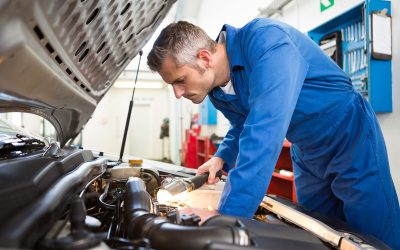Fuel efficiency is a crucial aspect of automotive performance, impacting not only the cost of vehicle operation but also its environmental footprint. Central to achieving optimal fuel efficiency are the engine components , which play a pivotal role in how effectively and cleanly a car burns its fuel. Understanding how these components work together can provide insights into improvements and maintenance strategies that enhance vehicle performance.
Key Engine Components Influencing Fuel Efficiency
1. Fuel Injectors
- Role: Deliver fuel to the engine in precise amounts.
- Impact on Efficiency: More precise fuel injectors improve combustion efficiency by ensuring that fuel is atomized properly, reducing waste and increasing the power output per unit of fuel.
2. Air Intake Systems
- Role: Regulate the air entering the engine for combustion.
- Impact on Efficiency: Enhanced air intake systems allow for a cleaner and more efficient air-to-fuel ratio, which can significantly boost fuel efficiency.
3. Engine Control Unit (ECU)
- Role: Acts as the vehicle’s brain, regulating the timing and operation of engine components.
- Impact on Efficiency: An optimized ECU can adjust settings in real-time to ensure optimal fuel consumption under various driving conditions.
4. Exhaust Systems
- Role: Expel exhaust gases from the engine.
- Impact on Efficiency: Efficient exhaust systems reduce back pressure, allowing the engine to breathe better and operate more efficiently.
5. Turbochargers
- Role: Increase the amount of air entering the engine to boost power.
- Impact on Efficiency: By enabling smaller engines to produce more power, turbochargers can help reduce fuel consumption while maintaining satisfactory performance levels.
To explore a wide range of engine components that can enhance your vehicle’s efficiency, consider the offerings available that cater specifically to these needs.
Improving Fuel Efficiency Through Maintenance
Regular maintenance of engine components is vital for sustaining their performance and, by extension, the fuel efficiency of your vehicle. Here are a few maintenance tips:
- Regularly replace air and fuel filters to ensure optimal air and fuel flow.
- Keep fuel injectors clean to avoid clogging and poor fuel atomization.
- Check and update the ECU software to benefit from the latest advancements in engine management.
- Inspect the exhaust system for leaks or blockages, which can affect engine performance.
The relationship between engine components and fuel efficiency is intricate and essential. Effective management and maintenance of these components not only prolong the life of an engine but also contribute to more environmentally friendly driving by reducing fuel consumption and emissions. By understanding and optimizing these key components, drivers can ensure that their vehicles perform at their best, providing both economic and environmental benefits.
For more information on how you can enhance your vehicle’s performance and fuel efficiency, visit GEXHAUST, where you can find a comprehensive range of products tailored to meet your automotive needs.
For more information on Engine Components, contact GEXHAUST at https://gexhaust.com/.








